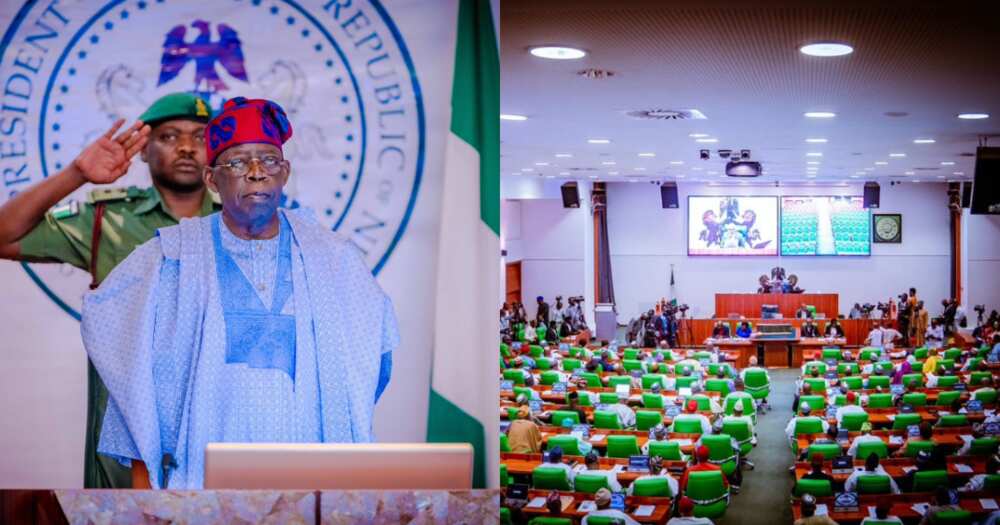On Thursday, the Nigerian Senate granted President Bola Tinubu’s request to amend the 2022 Supplementary Act, amounting to N819 billion.
The red chamber also authorized the president to deduct N500 billion from the N819 billion in order to provide palliatives for Nigerians in need after the removal of fuel subsidies.
According to Tinubu, the fund will give the federal government the ability to mitigate the effects of the recent elimination of subsidies for petroleum products.
The bill’s full title is “A bill for an act to amend the 2022 Supplementary Appropriation Act to provide the extraction of funds from the Supplementary Appropriation Act for the provision of palliatives to cushion the effects of fuel subsidy.”
In a separate official communication, Tinubu pleaded with the Senate to approve an 800 million dollar borrowing request. When the legislature approves the 2023 Supplemental Budget, the federal government will be able to fund it, according to him.
In the ninth National Assembly, the administration of former President Muhammadu Buhari sent the same request to the upper chamber, but the red chamber, which was led by former Senate President Ahmad Lawan, did not act on it.
In May, towards the end of his term as president, Buhari forwarded the official communication to the ninth Senate.
The request was accepted by the Federal Executive Council before its term ended on June 11, but the ninth Assembly was unable to take it up.
Tinubu asked the 10th Senate to approve the borrowing request in a new letter that was read by Senate President Godswill Akpabio during plenary.
The loan would be used to expand the National Social Safety Net Programme, the president explained in the letter. He stated that the World Bank would be the source of the new borrowing.
“Please note that the Federal Executive Council led by President Muhammadu Buhari approved an additional loan facility to the tune of $800m to be secured from the World Bank for the National Social Safety Net programme. Copy of Federal Executive Council’s extract attached. You may also wish to note that the purpose of the facility is to expand coverage of shock responsive safety net support among the poor and vulnerable Nigerians. This will assist them in coping with basic needs. You may further wish to note that under the conditional cash transfer window of the programme, the federal government of Nigeria will transfer the sum of N8, 000 per month to 12 million poor and low income households for a period of six months, with a multiplier effect on about 60 million individuals.While hoping that this submission will receive expeditious consideration by the Senate, please, accept the assurances of my highest regards,” Tinubu’s statement to the Nigerian senate partly read.
Akpabio provided a breakdown of the supplemental budget after the executive session. According to him, N500 billion was allocated for capital projects and other palliative care to lessen the impact of the recent subsidy removal. Additionally, he stated that N185, 236,937,815 had been authorised for the Ministry of Works and Housing to lessen the impact of the severe flooding the nation experienced in 2022 on the country’s road infrastructure across the six geopolitical zones.
Akpabio claimed that N19,200,000,000 had been approved for the Federal Ministry of Agriculture to lessen the extensive damage done to farmlands throughout the nation during the severe flooding experienced last year.
The National Judicial Council received N35 billion, and the Federal Capital Territory Administration received N10 billion for important projects.
Additionally, N70 billion was given to the National Assembly to support the working conditions of new members.








More Stories
Teenager in viral photo of Obi’s 2023 presidential campaign rally, Alabi Quadri languishes in jail
Ribadu tells families of kidnapped victims not to pay any ransom
Ozigbo rejects Anambra APC guber primary, calls it a theft